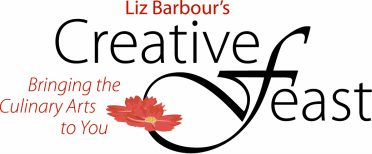Resistant starch is a tool to use on your health journey. Change out your rice and potatoes hot from the stove and learn how to prepare them to keep glucose low, improve gut health, increase the “feeling” of fullness and more. Below is a great article.
What is Resistant Starch?
Article Link
“Do not restrict your diet. Include all macronutrients. This is why fasting is so great. You can include all macros to create a diverse diet that will help create a healthy gut. Resistant starches should be included in your eating window or feasting time.
You may have already heard something about resistant starch. Maybe that it’s for good for weight loss and controlling glucose? If you haven’t heard about it, now is your time to learn more.
Let’s start with the definition.
Resistant starch is:
a carbohydrate that resist digestion in the small intestine and ferments in the large intestine. As the fibers ferment they act as a prebiotic and feed the good bacteria in the gut. There are several types of resistant starch. They are classified by their structure or source. More than one type of resistant starch can be present in a single food.
Benefits of Resistant Starch
When starches are digested they typically break down into glucose. Because resistant starch is not digested in the small intestine, it doesn’t raise glucose. Gut health is improved as fermentation in the large intestine makes more good bacteria and less bad bacteria in the gut. Healthy gut bacteria can improve glycemic control. Other benefits of resistant starch include increased feeling of fullness, treatment and prevention of constipation, decrease in cholesterol, and lower risk of colon cancer. Resistant starch is fermented slowly so it causes less gas than other fibers.
Foods Sources
Foods that contain resistant starch include:
* Plantains and green bananas (as a banana ripens the starch changes to a regular starch)
* Beans, peas, and lentils (white beans and lentils are the highest in resistant starch)
* Whole grains including oats and barley
* Cooked and cooled rice
The amount of resistant starch changes with heat. Oats, green bananas, and plantains lose some of their resistant starch when cooked. Another type of resistant starch is made in the cooking and cooling process. Cooked rice that has been cooled is higher in resistant starch than rice that was cooked and not cooled.
How to Add Resistant Starch to Your Diet
* Try cooking rice, potatoes, beans, and pasta a day in advance and cool in the refrigerator overnight. It’s ok to reheat the starch before eating. Reheating doesn’t decrease the amount of resistant starch.
* In place of cooked oatmeal, try uncooked oats soaked in yogurt, milk, or a non-dairy milk and refrigerate overnight (often called overnight oats).
* Add lentils to a salad or soup.
* As a partial flour replacement try green banana flour, plantain flour, cassava flour, or potato starch. Resistant starch will be lost when baking or cooking with these flours. You can also supplement with a small of amount (1-2 teaspoons) sprinkled on your food.
What is Resistant Starch?
Article Link
“Do not restrict your diet. Include all macronutrients. This is why fasting is so great. You can include all macros to create a diverse diet that will help create a healthy gut. Resistant starches should be included in your eating window or feasting time.
You may have already heard something about resistant starch. Maybe that it’s for good for weight loss and controlling glucose? If you haven’t heard about it, now is your time to learn more.
Let’s start with the definition.
Resistant starch is:
a carbohydrate that resist digestion in the small intestine and ferments in the large intestine. As the fibers ferment they act as a prebiotic and feed the good bacteria in the gut. There are several types of resistant starch. They are classified by their structure or source. More than one type of resistant starch can be present in a single food.
Benefits of Resistant Starch
When starches are digested they typically break down into glucose. Because resistant starch is not digested in the small intestine, it doesn’t raise glucose. Gut health is improved as fermentation in the large intestine makes more good bacteria and less bad bacteria in the gut. Healthy gut bacteria can improve glycemic control. Other benefits of resistant starch include increased feeling of fullness, treatment and prevention of constipation, decrease in cholesterol, and lower risk of colon cancer. Resistant starch is fermented slowly so it causes less gas than other fibers.
Foods Sources
Foods that contain resistant starch include:
* Plantains and green bananas (as a banana ripens the starch changes to a regular starch)
* Beans, peas, and lentils (white beans and lentils are the highest in resistant starch)
* Whole grains including oats and barley
* Cooked and cooled rice
The amount of resistant starch changes with heat. Oats, green bananas, and plantains lose some of their resistant starch when cooked. Another type of resistant starch is made in the cooking and cooling process. Cooked rice that has been cooled is higher in resistant starch than rice that was cooked and not cooled.
How to Add Resistant Starch to Your Diet
* Try cooking rice, potatoes, beans, and pasta a day in advance and cool in the refrigerator overnight. It’s ok to reheat the starch before eating. Reheating doesn’t decrease the amount of resistant starch.
* In place of cooked oatmeal, try uncooked oats soaked in yogurt, milk, or a non-dairy milk and refrigerate overnight (often called overnight oats).
* Add lentils to a salad or soup.
* As a partial flour replacement try green banana flour, plantain flour, cassava flour, or potato starch. Resistant starch will be lost when baking or cooking with these flours. You can also supplement with a small of amount (1-2 teaspoons) sprinkled on your food.

 RSS Feed
RSS Feed